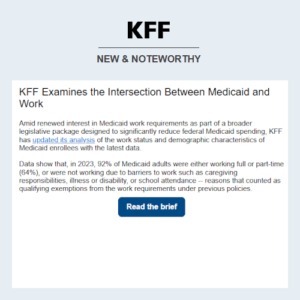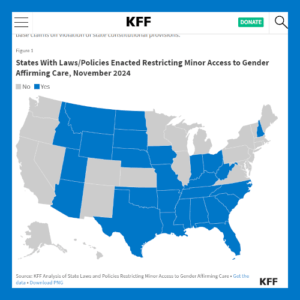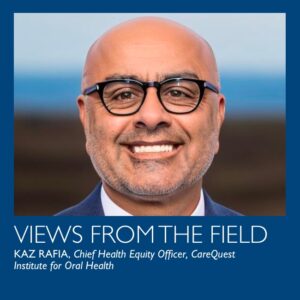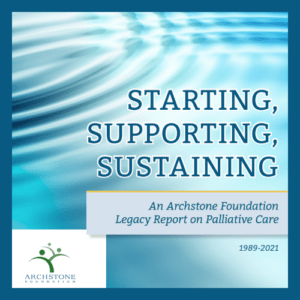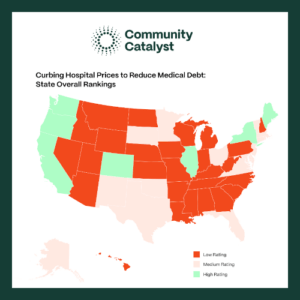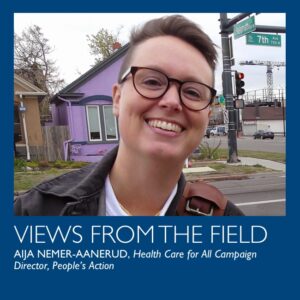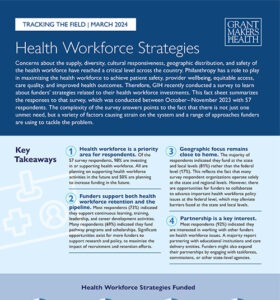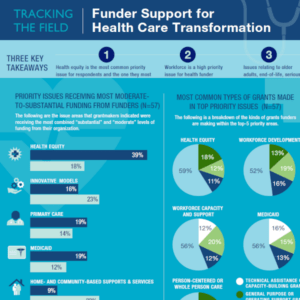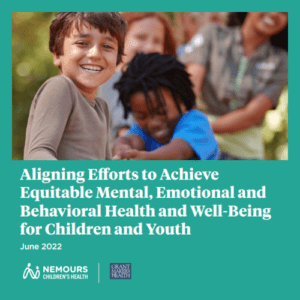Upcoming Events
Past Events
Featured Resources
Data Show That The Majority of Adult Medicaid Enrollees are Working
Amid renewed interest in Medicaid work requirements as part of a broader legislative package designed to significantly reduce federal Medicaid spending, KFF has updated its analysis of the work status and demographic characteristics of Medicaid enrollees with the latest data.
Youth Access to Gender Affirming Care at the Supreme Court: What to Know
Ahead of December 4 arguments in a Supreme Court case (U.S. v. Skrmetti) challenging the constitutionality of Tennessee restrictions for gender affirming care for minors, KFF explores the background of the case and potential rulings.
Explore Access and Quality Topics
Latest Resources
Healing for Our Healers: Funding Transformational Staff Wellness
The Healing Trust has prioritized support beyond the programmatic check since the early years of our grantmaking in 2003. While the “how” of the funding has changed over time, the “why” has consistently been to support the healing of nonprofit staff. This isn’t tangential to making strategic community-based investments, rather it is the foundation on which meaningful change can emerge. When funders invest in the well-being of the staff of partner organizations, it creates a culture where all people’s needs are prioritized and compassionately met. The nonprofit network thrives when its leaders are well-rested. When staff are well taken care of, the clients benefit by means of an energized supporter who shows up with creativity, patience, compassion, and joy.
Blue Cross Blue Shield of Massachusetts Foundation: November 2023
Blue Cross Blue Shield of Massachusetts Foundation developed a report as a resource for stakeholders to help explain the key elements of MassHealth Accountable Care Organizations, including the two types, who they serve, and the services they provide.
A Compendium of State Policies to Curb Hospital Prices and Reduce Medical Debt
Health care in the United States is the most expensive in the world by far and the reason is simple – health care providers keep increasing the prices of services. Hospitals, which represent the largest component of health care spending, have an outsized influence on medical debt in their communities through their policies and behavior.
KFF: September 2023
KFF released three reports analyzing Medicare Advantage’s impact on enrollment, benefits and cost-sharing, and bonus payments. One report found that “federal spending on bonus payments to insurance companies that offer Medicare Advantage plans” will be at least $12.8 billion, around 30 percent more than in 2022 and more than four times the spending in 2015.
Publications and Reports
2024 Survey Summary: Health Workforce Strategies
Concerns about the supply, diversity, cultural responsiveness, geographic distribution, and safety of the health workforce have reached a critical level across the country. Philanthropy has a role to play in maximizing the health workforce to achieve patient safety, provider well-being, equitable access, care quality, and improved health outcomes. Therefore, GIH recently conducted a survey to learn about funders’ strategies related to their health workforce investments.
Funder Support for Health Care Transformation
This infographic summarizes the responses to a Grantmakers In Health funder poll, conducted October 2022, on how philanthropy is supporting health care transformation efforts, especially those concerned with improving quality of life, coordinating complex care, and taking patient preferences into account.

